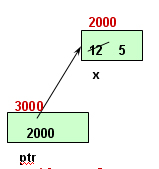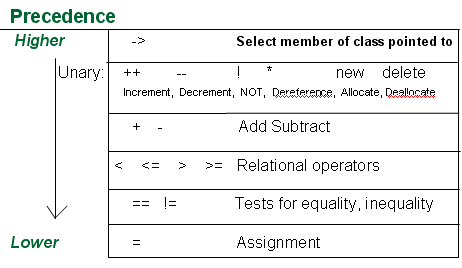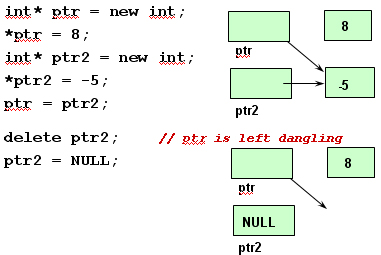CS3240: Data Structures and Algorithms |
||||||
|
Data Structures: Pointers and Memory Issues
Pointers
|
Getting Pointer to a Variable
|
Array name is a Pointerchar msg [ 8 ]; msg is the base address of the array.
|
Using Pointers....An Example
int x;
x = 12;
int* ptr;
ptr = &x;
*ptr = 5; // changes the value at adddress ptr to 5
|
Some Pointer Operations |
Dangling Pointer
|
Dynamic Allocation using Pointers - new and delete
Example Allocation and Deallocation using new and delete using namespace std; Node *ptr = new Node; // where Node is a class. ... delete ptr; // Later on we get rid of the allocated memory pointed to by ptr
|
PROBLEM -- you CAN NOT delete statically created items Node abc; //this is "statically created in memory called the node constructor
|
Special Note about new/delete and malloc/free
|


